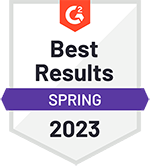QA testing and software testing tools have advanced rapidly in the past decade. It is actively driving innovation and progressing with the evolving technology world from AI to ML. Also, the demand for software testing is rising quickly. Did you know the scale of the App Testing Industry in 2019 surpassed USD 40 billion? And that it is projected to rise from 2020 to 2026 at an annual average of over 6 percent?
Unquestionably, inadequate testing, lack of effective testing methods, data, and configurations are the most common blockages faced by QA teams. Fortunately, 2021 will bring impressive innovations to address many of these problems.
Any business that wants to keep on top of their software testing game going into the next decade needs to know these software testing trends that will dominate in 2021.
Scriptless Test Automation
In recent decades, most firms have been introducing products to the market in different directions at a quick rate. It can be a stressful process if testers spend a lot of time studying new, complicated languages as well as operating on backlogs.
Scriptless Automation Systems make it easier for teams not to waste extensive programming hours. These techniques allow testers to simplify reusable and stable experiments by incorporating AI and ML algorithms and reliable findings into the self-healing mechanism.
These software testing tools are user-friendly, have quicker effects, shorten the length and resources expended on repair costs, and fill the technological level deficit.
As one of the influential software testing patterns, Scriptless Test Automation is rapidly endorsed.
To sum up, an essential practice that test teams can embrace in 2021 can be considered scriptless test automation.
AI & ML for Automation In Testing Automation
Thanks to the increasing number of applications we use in our digitally globalized world, AI usage is expected to continue to expand in just about every area of innovative technology. In North America alone, new investments in Artificial Intelligence are estimated to be USD 6-7 billion. By 2025, the total global expenditure in artificial intelligence is estimated to hit almost USD 200 billion.
In more research areas, we would continue to see Artificial Intelligence apps, most of which will refer to analytics and reports.
With the assistance of analytics and monitoring, software testing and QA teams will exploit Machine Learning (ML) and Artificial Intelligence (AI) to optimize their automated test techniques and keep track of recurring updates. For example, to explore and prioritize the potential for additional automatic testing, software testers may use AI algorithms. In addition to sorting out the workloads of software tests, AI-powered test applications can refine test suites by reviewing keywords from an RTM after finding redundant test cases and maintaining optimal test coverage.
DevOps and Agile
Agile has been implemented by companies as a solution to constantly evolving demands and DevOps as a solution to the need for speed.
To minimize the time from production to operations, DevOps requires procedures, regulations, processes, and instruments that help to combine development and operational activities. For companies that are looking at ways to shorten the software life cycles from production to distribution and service, DevOps has become a commonly embraced approach.
The implementation of both Agile and DevOps enables the teams to quickly create and produce great software, which is also referred to as “speed of operation”. Over the past 5 years, this adoption has gained a lot of popularity and will also begin to increase in the coming years.
Big Data Testing
One of the main app testing developments that would have a positive effect on various sectors in 2021 will be Big Data Testing.
Big data is primarily used in diverse fields, such as retail, finance, accounting, healthcare, media, telecommunications, etc.
In order to build marketing campaigns that involve continuous and efficient research, most businesses across all types of sectors work with big data and cope with a high amount of data.
Big data testing addresses diverse types of data and large volumes of data and aims to optimize assessments, verify data, and enable informed marketing plans and strategic choices.
Instead of adopting conventional research methods, we need to craft an efficient Big Data testing approach to conduct big data testing.
In Big Data testing, data consistency is important, regardless of whether the data is organized or unorganized. Functional monitoring and application consistency assessment, together with the accuracy of the data, are both key elements of big data testing.
Engineering for Performance
Although the targeted market is characterized by the number of platforms on which each application is obtainable, client experience carries additional credence. It is the engine of fast-changing specifications, shorter periods of growth, and more regular launches.
In reaction to this trend, IT and tech firms have begun to revisit their goals in favor of a consumer-focused approach to quality standards at any single level of the software lifecycle, mainly to address and eliminate future performance issues at the very first stage of the life cycle of the device.
As a consequence, in different cases, performance testing priorities, such as reliability, usability, and speed of the app, have turned into evaluating the inadequate performance of the device and understanding where it is embedded in the process of development.
Performance engineering helps QA engineers or testers who use software testing tools to construct required performance measures from the original design.
Final Words
Software Testing is gaining more momentum with time and new trends are popping up everywhere. To release a high-quality product to the consumer, businesses must follow these testing trends.
You need to continually be aware of these software testing trends, whether you are a testing specialist or a business, to keep ahead of the ever-changing industry.















































